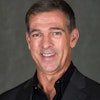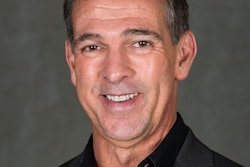‘Anchors In the Community’
No longer self-enclosed enclaves, universities join hands with residents, government and organizations to create safer, better neighborhoods
By Lydia Lum
Ten years ago, Myrtle Gordon and her neighbors feared turning their lights on because it was likely to attract a drive-by shooting of their homes, in Columbia, S.C. Stepping out, they could see the illegal liquor houses and drug dens that riddled their neighborhood, and which surrounded Benedict College.
Now, crime and blight are nearly gone. In their place is a mix of renovated and new wood-frame and brick homes, as well as bungalows and Victorian and patio homes. The neighborhood’s appearance has been restored to that of several decades ago. Families and working professionals, including Benedict employees, are gradually moving in, replacing transients and drug dealers. The transformation, Gordon and other residents say, has resulted from the private, historically Black college helping to clean up the community and ignite housing and economic revitalization.
Benedict’s efforts, financed through grants as well as corporate and individual contributions, are part of a growing wave of higher education institutions across the country improving their surrounding neighborhoods. These colleges and universities that were once self-enclosed enclaves are now assuming the role of community developer. They have joined hands with residents, government and organizations to create safer, better neighborhoods in urban areas, especially where minorities and immigrants live.
“Now, we can walk and feel good about the area,” says Gordon, who has lived near Benedict all her life. She retired after teaching in public schools for 33 years. “No changes are made in this community that we are not aware of.”
Indeed, it’s a list of changes that Benedict has sparked in this area north of downtown Columbia. College officials steer students — who must finish 120 community service hours before graduating — toward neighborhood improvement efforts. The college is more than just a name partner of the Benedict-Allen Community Development Corp., but has employees filling one-third of the CDC’s board seats. Benedict President Dr. David Swinton himself serves as board president. The college purchased a vacant lot and established a park, complete with basketball and tennis courts and a children’s playground. Although university-owned, it will open in 2003 as a public space. “It’s wonderful to have green space again,” Gordon says.















